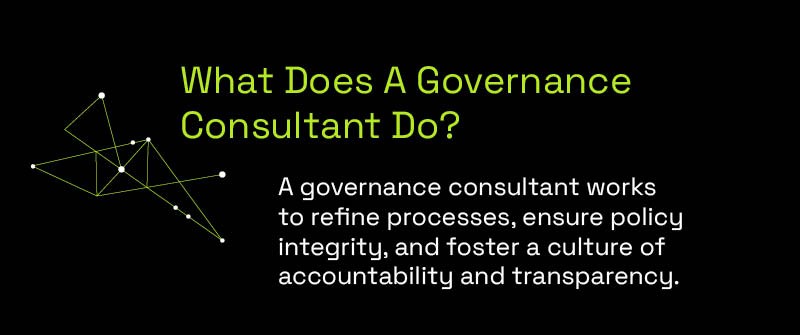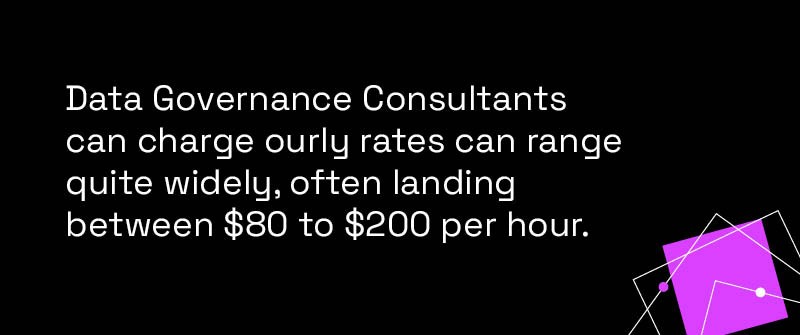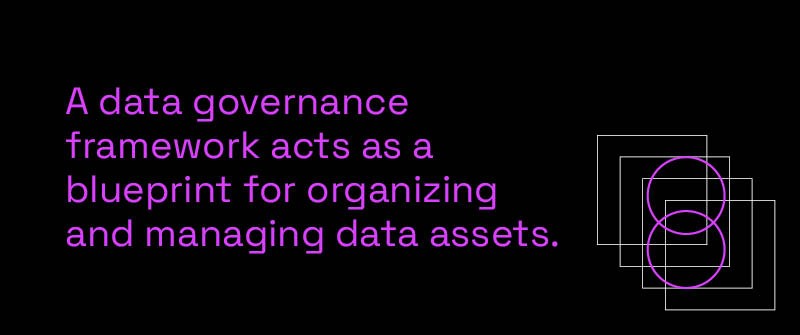
What Does A Data Governance Consultant Do?
Defining the Role of a Data Governance Consultant
A Data Governance Consultant plays a pivotal role in helping organizations manage their data assets efficiently and securely. They are the architects behind the frameworks and processes that ensure data assets are properly managed across the enterprise. A Data Governance Consultant’s primary objective is to establish a foundation for data management that includes policies, procedures, and protocols, ensuring that data is accurate, accessible, and protected. These efforts often align with Business Intelligence Consulting Services, which further enhance an organization’s ability to leverage data for strategic decision-making and operational efficiency.
Key Responsibilities and Daily Tasks
The responsibilities of a Data Governance Consultant are extensive and cover various aspects of data management. They work on creating and implementing a data governance framework that aligns with the organization’s goals and regulatory requirements, including managing data governance initiatives. This includes defining roles and responsibilities related to data handling, creating policies for data storage and access, and developing strategies for data quality and compliance. The main purpose of data governance is to ensure that data is accurate, secure, and used responsibly to support business operations and decision-making. Daily tasks may involve collaborating with IT teams to ensure data governance policies are adhered to, conducting data audits, and training employees on data handling best practices.
Skills and Qualifications Required
The role demands a unique blend of technical and managerial skills. A successful Data Governance Consultant needs a profound understanding of data management principles, data privacy laws, and data governance strategy development as a crucial component in establishing a comprehensive data governance program. Expertise in data governance tools and technologies is crucial, along with strong analytical and problem-solving skills. Communication and project management skills are also key, as these consultants frequently interact with stakeholders across the business. Typically, a background in computer science, information systems, or a related field, along with relevant experience in data governance or management, is required.
What Does A Governance Consultant Do?
Governance consulting encompasses a wide array of advisory roles aimed at enhancing organizational operations and ensuring regulatory compliance. A governance consultant works closely with organizations to refine processes, ensure policy integrity, and foster a culture of accountability and transparency. These professionals are crucial in guiding companies to navigate complex regulatory environments and align their governance structures with strategic business objectives.

Overview of Governance Consulting
At its core, governance consulting involves assessing an organization’s current compliance frameworks and operational structures. An effective data governance program is crucial in this process, as it encompasses all aspects of data management within an organization. Consultants conduct exhaustive audits to identify gaps and strengths within the existing governance frameworks. By leveraging industry best practices, they provide tailored solutions that mitigate risks and optimize performance. As facilitators of change, governance consultants drive initiatives that empower organizations to meet societal and legislative expectations while enhancing overall effectiveness.
Difference Between Data Governance and General Governance Consulting
While data governance is a specialized area focusing on the management and protection of an organization’s data assets, general governance consulting has a broader reach. It encompasses oversight of overall organizational policies, corporate ethics, and stakeholder engagement strategies. Data governance consultants specifically ensure data accuracy, privacy, and compliance with data protection laws through a comprehensive data governance program. In contrast, general governance consultants work on a wider scope, addressing governance issues at an enterprise level, including board operations, leadership structures, and risk management practices.
Expected Deliverables from a Governance Consultant
The successful engagement of a governance consultant should yield several concrete deliverables. These can include a comprehensive assessment report, a set of strategic recommendations, and actionable roadmaps for adopting best practices. Additionally, consultants often provide training sessions to enhance internal competencies and foster a governance-oriented culture. Their insights empower organizations, enabling them to not only comply with governance standards but also to leverage these practices for competitive advantage.
By engaging P3 Adaptive’s governance consulting services, businesses can unlock significant value. Our consultants are adept at transforming complex regulatory requirements into actionable, business-enhancing strategies. We pride ourselves on delivering practical solutions that not only ensure compliance but also drive innovation and efficiency.
What Is The Rate Of Data Governance Consultants?
Understanding the Rate of a Data Governance Consultant
The rates charged by a data governance consultant can vary significantly depending on several factors, making it essential for business leaders to understand the landscape before engaging in services. Generally, fees can be structured either as hourly rates or annual salaries. Understanding the nuances of these options can help organizations make informed decisions.
Hourly Rates vs. Annual Salaries
Many data analytics consulting companies and independent consultants offer their services on an hourly basis. This approach provides businesses with flexibility, allowing them to engage experts as needed. Hourly rates can range quite widely, often landing between $80 to $200 per hour, depending on the consultant’s level of experience, geographical location, and the complexity of the project.
For organizations in need of ongoing support, hiring a consultant on an annual salary basis may be more beneficial. The Data Governance Consultant’s salary for full-time roles might range from $90,000 to $150,000 annually, influenced by factors such as industry sector, company size, and the consultant’s expertise level.

Factors Affecting Consultant Rates
Several determinants affect the rates charged by consultants, including the consultant’s experience, the scope of the data governance services provided, and the specific needs of the business. Additionally, consultants with specialized skills or knowledge in niche areas of data governance, such as master data management, can command higher fees. Market demand and evolving trends in data compliance and security also play roles in setting consultant rates.
Industry Benchmarks and Standards
Industry benchmarks are vital for ensuring competitive rates and preventing overcharges. Consulting industry reports and salary guides from reputable data analytics consulting companies can provide up-to-date information for comparison. Establishing connections with peer organizations and using professional networks can also offer insights into prevailing rates, which is especially useful for benchmarking purposes.
Utilizing data governance consultants holds immense potential for businesses aiming to refine their data-handling processes. Armed with a clear knowledge of consultant rate structures and the factors influencing these costs, business leaders can engage the right experts to leverage data as a strategic asset effectively.
How To Implement A Data Governance Plan
Implementing data governance is critical for ensuring that an organization’s data is managed effectively and securely and meets compliance requirements. A robust plan not only protects data integrity but also enhances data usability, leading to better decision-making and strategic business advantages.
Steps in Creating a Successful Data Governance Strategy
The implementation of a successful data governance plan involves several strategic steps:
1. Define Objectives and Scope
It is essential to begin by clearly defining the objectives of your data governance strategy. Establishing a clear scope helps in aligning the governance processes with business goals and ensures all stakeholders understand the importance of the governance program.
2. Assemble a Governance Team
Forming a dedicated team that comprises leaders from data management, IT, and core business areas is crucial. This team will oversee the implementation and ongoing management of the data governance framework.
3. Develop a Data Governance Framework
A data governance framework serves as a blueprint for organizing and managing data assets, with data strategy consulting playing an integral role in its development. Choose or design a framework that aligns with your organization’s operational needs. Examples of effective frameworks include DAMA-DMBOK, COBIT, and CMMI models, each offering unique benefits based on organizational requirements.

4. Implement Policies and Procedures for Data Quality
Establish clear policies and procedures for data management, outlining the responsibilities for data stewardship, quality assurance, privacy, and security, ensuring consistency and compliance across all departments.
5. Employ Technology Solutions
Leverage technology solutions that facilitate automation, monitoring, and enforcement of governance policies. This could include data management platforms, security protocols, and compliance tracking tools.
6. Training and Communication
Regular training sessions and effective communication strategies ensure that all employees understand their roles in the data governance process, promoting a culture of data responsibility and accountability.
Examples of Effective Data Governance Frameworks
Successful examples of data governance frameworks provide measurable benefits, including improved data quality, increased regulatory compliance, and enhanced data security. Frameworks like DAMA-DMBOK offer comprehensive guidelines on data management functions, while COBIT emphasizes IT governance integration.
Role of Consultants in Implementing and Maintaining Governance Plans
Consultants play a pivotal role in both the implementation and continuous improvement of data governance plans. They bring expertise in assessing current data processes, identifying gaps, and recommending best-fit frameworks. Their guidance in maintaining the plan ensures that it evolves in line with technological advancements and regulatory changes.
Empower your business to achieve strategic advantages with P3 Adaptive’s expertise in data governance services. Our experienced consultants transform your data landscape into actionable insights, equipping your organization to tackle even the most challenging business problems. Partner with us to gain confidence in data-driven decision-making and unlock the potential within your operations in a matter of weeks. Contact the P3 Adaptive team today!
Get in touch with a P3 team member